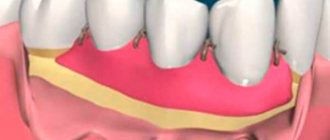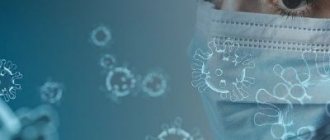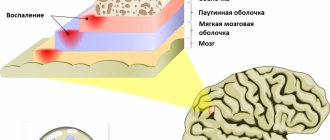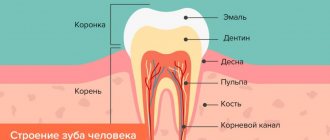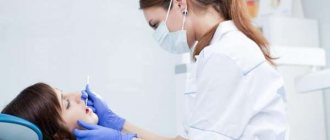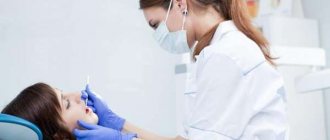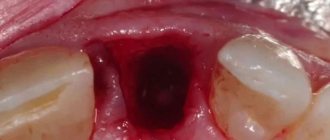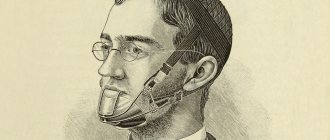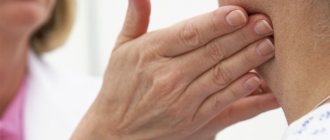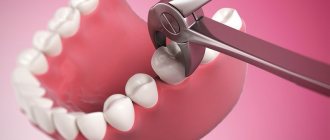Photo source: C Technical/pexels
Dentists include doctors who deal with the diagnosis, prevention and treatment of teeth. They can also treat the maxillofacial apparatus, correct the bite, and so on.
Dentist is a profession that has branches:
- surgeon;
- orthopedist;
- therapist;
- orthodontist;
- periodontist.
A dental surgeon has special knowledge in the treatment of teeth and jaw apparatus. He undergoes special training to perform operations that involve interference with body tissue.
Orthopedic dentist - performs prosthetics using crowns, inlays, and also deals with implantology.
Dental therapist is the main specialty. These dentists provide general examination and treatment of teeth, gums and maxillofacial apparatus.
Dentist-periodontist - deals with the treatment and correction of tissues surrounding the tooth.
Orthodontist - his responsibilities include the correction and correction of anomalies of the maxillofacial system. For example, his clients may be people with malocclusion, crooked incisors and disproportionate chins.
There are other areas of dentistry, for example, pediatric dentistry.
Photo source: C Technical/pexels
What items must be taken to the dentist?
Dentistry is considered an in-demand industry in medicine and, despite its apparent simplicity, not everything is so simple with it.
The dentist must be able to:
- Contact with people and not feel disgust or dislike at the sight of blood.
- It is easy to operate medical devices and have good vision.
This is a responsible profession that involves providing assistance to people in need. Learning is unlikely to seem easy, because medicine always requires deep knowledge. You will have to learn the anatomy of the structure and learn how to operate the basic dentist tools.
But this is after entering a higher educational institution. There are not so few people who want to become a dentist, so competition for admission to medical universities is always high. The following candidates are given priority:
- students who passed specialized subjects with the highest score;
- winners and participants of Olympiads in specialized subjects (can be held outside the competition).
The admissions committee will require deep knowledge in a number of subjects from the applicant. While within the walls of their “native school”, students should “pull up” their knowledge in the following disciplines:
| Chemistry: | It is considered the main subject that you need to know “excellently” and demonstrate your knowledge when passing the Unified State Exam. |
| Biology: | Another specialized subject, the knowledge of which must be at a high level, otherwise it is unlikely that you will be able to enter a medical university. |
| Russian language: | It is not considered a core subject, but upon admission to such an educational institution, you will have to take exams in this discipline. |
| Mathematics: | Another non-core subject that is unlikely to be useful to a dentist in everyday work, but in order to receive a certificate, you will have to pass an exam in mathematics. |
For any applicant planning to connect his life with medicine, it is necessary to have a deep knowledge of chemistry and biology. For everyone, including dentists, these subjects are considered core subjects, that is, they are necessary for obtaining, mastering a profession and entering a university.
If initially the student does not have a high understanding of these disciplines, then even when entering the desired profession, serious problems with academic performance may arise during the learning process. Is there any point in wasting time and effort?
Admission conditions
The main objective of the course is to train a specialist who can take responsibility for the treatment of the patient. This involves performing specific practical tasks of varying levels of complexity, so you cannot do without theory and practice. What subjects must be passed successfully to be admitted to this major:
- chemistry (major exam);
- Russian language;
- biology/physics.
Exam subjects for 9th grade graduates
The problem is that a 9th grade graduate cannot enter a higher education institution. This requires a high school diploma. That is, you need to complete 11 classes. But, there is another path suitable for 9th grade graduates. What does it consist of:
- If you successfully pass exams in specialized disciplines, you can enter a technical school or college.
- There is no specialty “dentist”; to obtain it you need to graduate from a university, but you can enroll in “nursing”.
- This will help you gain certain knowledge and prepare for admission. To a university, and then continue studying there in the chosen profession.
Where to apply
The popularity of the field is evidenced by the large selection of Moscow universities where you can get a specialist’s diploma in this field:
- State Classical Academy named after Maimonides;
- Russian National Research Medical. Pirogov University;
- Peoples' Friendship University of Russia;
- First Moscow State Medical University named after Sechenov;
- Moscow State Medical and Dental University named after Evdokimov.
Subjects for 11th grade graduates
A certificate of complete secondary education is obtained after successful completion of schooling. This gives the right to choose a university, submit documents to it and enroll in the chosen specialty.
What exams must be taken by eleventh-graders, dentists, for admission to a higher educational institution:
| Chemistry: | Having deep knowledge in this discipline, you will be able to enter a prestigious educational institution. |
| Biology: | An excellent knowledge of human anatomy and genetics will be required. |
| Russian language: | When entering medical faculties, knowledge in this discipline is also necessary, so it is better to “pull up” your knowledge of the Russian language in advance in order to pass the exams successfully. |
Naturally, when applying to become a dentist, you will have to pay special attention to chemistry and biology. Russian and mathematics are considered general disciplines and are not directly related to the profession. But they will affect the overall score, so it is better to successfully pass all exams so that the passing score is higher, as are the chances of admission.
Many universities, especially prestigious ones with a high passing grade, are tightening their selection. They conduct testing that helps teachers evaluate applicants' knowledge. In this case, upon admission, the commission evaluates not only the Unified State Examination results, but also the test results.
Testing is considered a higher priority than the Unified State Examination score; this gives young people who did not pass the exams very well a chance to enter their chosen specialty and still become a dentist.
If preparation for additional testing is not part of the applicant’s plans, then he should choose an educational institution that does not conduct such tests. And those wishing to enroll are “weeded out” in a different way, based on the results of exams in specialized disciplines.
In this case, it will be enough to pass the Unified State Exam successfully to get a passing grade and be enrolled in the chosen university.
Is it possible to take retraining courses?
By order of the Ministry of Health No. 707n, only doctors with internship or residency training in the specialty “Dentistry” or “General Dentistry” can undergo retraining in dentistry.
In accordance with Article 69, Federal Law No. 323, dental therapists must undergo retraining if they have not worked in their specialty for more than 5 years.
During retraining courses they study:
- rules of dental treatment;
- diagnosis of diseases;
- pathologies of dental development;
- mechanics and biomechanics of the maxillofacial apparatus.
Retraining courses can be conducted both face-to-face and remotely.
Advantages of distance learning:
- no need to take time off to study the course;
- Both a standard work plan and a personal one are available;
- the acquired skills can be applied before completing the course;
- Access to educational materials is available at any time during the year from the start of the course.
A typical vocational retraining program typically lasts more than 500 hours. With a daily load of 6-8 hours, you can complete the course in about 3 months.
To enroll, you do not need to wait for a group to be recruited. You will also need the following documents for enrollment:
- passport;
- diploma of education;
- certificate (residency or internship).
You can find out how much training to become a dentist costs from the manager who fills out the student’s application.
Upon completion of the course, a standard diploma is issued. An electronic copy is sent to the listener immediately. You can receive your completed diploma by mail or yourself. The document can be obtained even while in another country. For the document to have legal force, the DPO organization must have an education license.
Professional retraining / Health and medical sciences / Medicine / Dentistry
Orthopedic dentistry (for VMP)
Academy of Modern Technologies
Distance, All professional retraining
Tyumen
Training period
More details
Professional retraining / Health and medical sciences / Medicine / Dentistry
Surgical dentistry
Academy of Modern Technologies
Distance, All professional retraining
Tyumen
Training period
More details
Further Education / Health and Medical Sciences / Medicine / Dentistry
Dentistry therapeutic
Academy of Modern Technologies
Remote, All advanced training
Tyumen
Training period
More details
Profession dentist: pros, cons, who is suitable
Let's talk about the advantages of the profession, because being a dentist is not so easy. Among the advantages:
- Prestige and high pay, even when working not in a private clinic, but in a municipal hospital or clinic.
- The opportunity to help people who experience pain and discomfort, make their lives easier with the help of your knowledge and skills.
- Demand is another factor that plays an important role when choosing a profession.
- Doctors are always in short supply, and professionals in their field can easily find work, even in times of crisis.
- Doctors often undergo training and improve their skills in other cities or even countries, learning from the experience of colleagues and applying it in practice.
Working as a dentist may seem routine, but knowing his job, the doctor will easily cope with it and at the same time will enjoy treating people. Helps them improve their health and cope with pain.
Acquired skills
This course teaches the future dentist many valuable skills:
- dental examination;
- recommendations for oral care;
- selection of toothbrush and paste;
- teeth brushing training;
- diagnosing dental diseases;
- treatment of diseases;
- anesthesia;
- simple orthopedic treatment;
- professional hygiene;
- hygienic procedure for persons who have undergone surgery in the jaw and face;
- working with modern dental equipment;
- participation in investigative and judicial actions;
- sanitary treatment of premises;
- filling out medical documentation;
- management of medical staff (junior and middle management).
Career, places of employment
When the difficult period of study is over, the newly minted specialist awaits at least two more years of residency practice. This time is usually used to gain experience and outline options for future “adult” work. As a rule, young specialists go to paid clinics - general or highly specialized. Here the dentist is able to develop professionally and practically, improving his qualifications. Or he can go in the administrative direction and become the head or owner of his own clinic. Some also choose the scientific path: they remain teaching at a university with a small practice in some hospitals and go into theoretical and applied development.
Career growth of a dentist
Dentists are divided into categories: first, second and highest. To confirm the first category, you need experience (three years), protection of the following categories after seven and ten years, respectively.
Confirmation is carried out before the commission with a report on the work done. To advance up the career ladder, you need to be a talented and hardworking doctor; your merits will not go unnoticed.
Characteristics of the profession - what it does, functions and responsibilities
Let's see what specializations dentists have:
- The therapist is the doctor to whom you turn first. The general practitioner analyzes the general condition of the teeth. Finds problem areas, treats caries, removes nerves, puts fillings and restorations, and prepares teeth for prosthetics.
- The surgeon performs operations in the oral cavity: removes teeth, restores the jaw after injuries, prepares the oral cavity for implantation, prosthetics, orthodontic and orthopedic treatment. Deals with problems related to inflammatory processes, cysts and tumors.
- An orthodontist corrects malocclusion – a situation where the jaws do not close straight, but deviate to the right or left; corrects the curvature of the teeth - increased crowding, in which the teeth have “not enough space” and they run into each other or vice versa. The result of his work carries an important aesthetic point for the patient.
- Orthopedist – comes to the rescue when teeth are missing. Restores them with the help of dentures, removable or permanent, and fully reproduces the important chewing function. If it was possible to save a small part of the tooth, then it uses restoration technology using a crown. This doctor works in tandem with a dental technician - a specialist in the manufacture of dentures and prosthetic elements for a specific case.
- Hygienist is a relatively new field. Monitors the cleanliness of the oral cavity, carries out preventive and hygienic procedures to maintain oral health. Removes plaque, tartar, polishes enamel. Provides consultations regarding the prevention of dental diseases.
- Implantologist – specializes in restoring lost teeth using implants. Innovative technology allows you to install tooth analogues that are no different from real ones. Conducts a full examination, preparation in several stages and the implantation itself. Observes the patient throughout the entire period of rehabilitation after the intervention.
- A pediatric dentist is a doctor who deals with children's dental problems. Removes and treats baby teeth so that the molars develop healthy; puts fillings; fights oral diseases that children are prone to at an early age. A pediatric dentist should not be a doctor, but a kind wizard who will convince the child to treat his teeth and be able to perform all the manipulations without tears.
How to pass the examination for 200 points
How to pass the external examination in Ukrainian language and literature, biology and other subjects for 200 points? Firstly, preparation should begin at least 2 years before the exam in order to practice more. If it didn’t work out in advance, then you need to focus on the sections with the most questions. Usually the most tasks are on the syntax and morphology of the language.
You also need to practice writing an essay, because it gives the most points. Although you should not focus on it - in medical and polytechnic universities it is more important to write with the least number of errors.
It is more effective to prepare together with friends: explain topics to each other, organize competitions to test your knowledge of the subject. Special associative sentences also help memorization. For example, which consonants are voiceless? The sentence will help: “TsAP KhoChe FISTASHKI” - the corresponding letters are highlighted here.
It is worth taking tests from previous years - they can be found on the Internet on educational sites.
Psychological advice: on the day before cancer you need to relax. Relax, spend time with family or friends. Then look through all the topics at a glance. This way you will remember the questions with which you started preparing. It is also important to go to bed on time to get a good night’s sleep - this will give you more strength during the exam.
